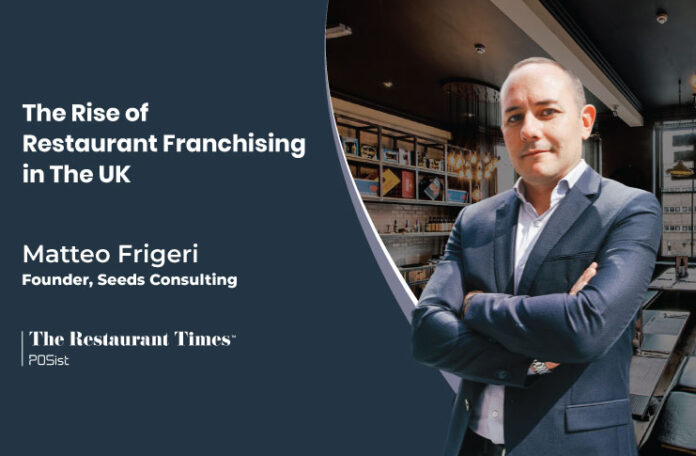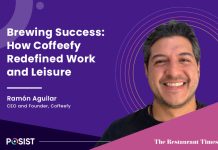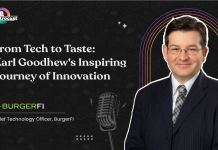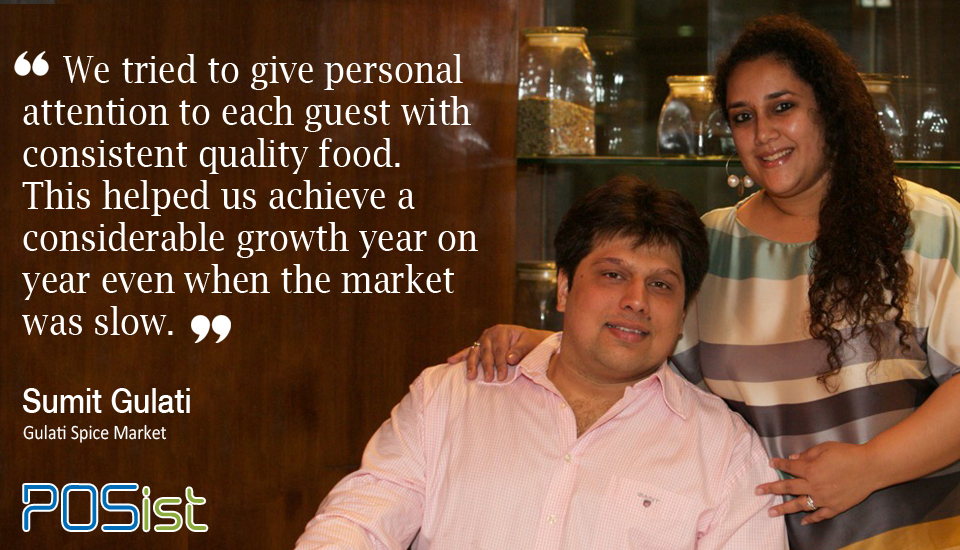Matteo Frigeri is the founder, with his partner David Liveing, of Seeds Consulting, a London-based company specializing in the UK and cross-border business development for the restaurant industry. Matteo, David, and their team have the privilege of working with some of the most talked-about international restaurant concepts such as The Avocado Show, The Vegan Junk Food Bar, The Butcher, Pitaya, Bubblewrap, Pieminister, and Crepeaffaire. Seeds Consulting specializes in restaurant operations worldwide, and it acts on lease acquisition for several UK clients. It is responsible for bringing several concepts to the UK market, including Sunday in Brooklyn from New York and Flower Burger from Milan.
In Conversation with Matteo Frigeri, Founder, Seeds Consulting
In an exclusive conversation with The Restaurant Times, Matteo Frigeri, founder Seeds Consulting, talks about restaurant franchising business, understanding the challenges in the new normal, and Franchising 2.0, a new era of franchising in 2022.
The market is opening up to franchising.
We are different from traditional franchise consultants as we’re on edge between the restaurant and franchise industries. We also operate in real estate and have a specialized hospitality consultancy. Over the last year, we have seen sales gradually edging back to 2019 levels in many places across the UK, with occupancy levels as high as 80%. We are seeing an exciting trend that some big brands that profess a no franchising philosophy have started offering franchises. It is an exciting time in the UK as major franchisors from the US, typically like Popeyes and Wendy’s, are expanding in the market. The bottom line is that it’s a perfect moment for franchising, and there will be a lot more development as brands prepare to go outside of the domestic market.
How brands should define their franchising strategy
The most important thing one should keep in mind when he wants to decide which model is the best for them is the UPS. You need to have a bit of genius in your console, I think USP can be the operations model, or it can be the marketing approach, or how unique the brand is and how sophisticated the brand is. Looking for that differentiation is also important, say, for example, you don’t want to invest in something, which is just a copy of Starbucks, because people would, especially in a market like the UK, have the tendency of brand-driven purchasing. If you go with a smaller brand that looks like Starbucks; then you’re not going to have a lot of success. But suppose you go with a brand that perhaps has a better food offer than Starbucks or has a more premium positioning, for example, because they roast their beans locally. In that case, they have something unique about it; then it makes more sense to invest in that category.
So the point I would like to make is that always look for something different and relevant to the consumer. The best thing is always to have a good read of customer preference and taste, invest in good service, grasp what’s happening in the market and what the trends are shaping consumer behavior.
Franchising 2.0 is the way forward.
We have designed and implemented Franchising 2.0 to achieve faster business growth with the franchise model. Our method relies on:
- Ensuring the franchise investment is appealing to a wide variety of potential investors
- Focusing on direct approaches to a network of existing food operators as opposed to indiscriminate advertising
- Providing brand reputation within the real estate community and maximizing access to site opportunities
- Adopting a multi-channel approach involving traditional and non-traditional locations and operators
- Helping our clients formulate a sensible international development strategy
Franchising 2.0 is built around the capability not just to take a brand proposition as it is marketed, but being able to mold and shape that franchise proposition to make it more attractive for franchisees. It sort of brings in a couple of elements into the equation. One is the real estate element, and the other is the operational element. So being able to assist the franchisor from a real estate perspective and also from an operations standpoint sets us apart. That’s what franchising 2.0 is thinking outside the box and maximizing the impact.

















